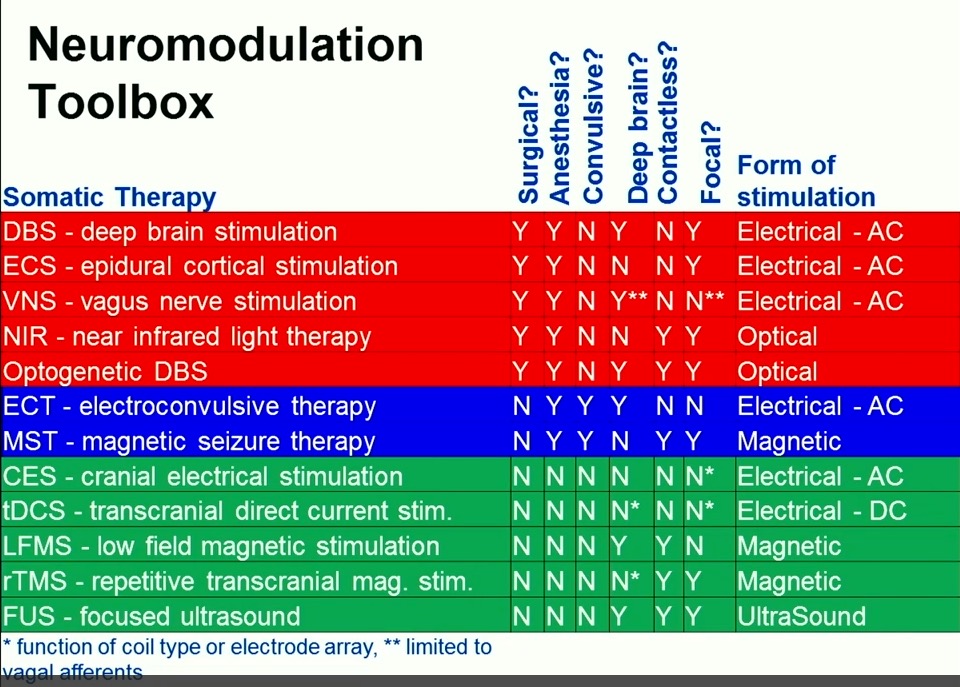That’s what I remember thinking the first time I figured out that they were talking about opening your skull and planting electrodes into your brain. Then I thought… Imagine being so desperate that that would seem like a sensible next step in your course of treatment. And then I thought… Wouldn’t it be amazing if tDCS, Focused Ultrasound, or now Temporal Interference, could replicate the results without the surgery.
Recently the always excellent Invisibilia podcast covered DBS as applied to depression and OCD. We hear from the patient, her boyfriend and the doctors involved. I have a completely new understanding of the procedure and its effects. I highly recommend a listen to this episode.

